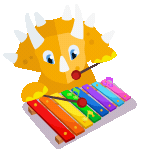Why Pretend Play Helps Kids Learn a Second Language Faster
Pretend play is a natural part of childhood and one of the most effective tools for language learning. When kids act out stories, take on roles, and create imaginary scenarios, they engage their brains, emotions, and vocabulary all at once.
Here’s why imaginative play is so effective for building second language skills.
1. Language Comes with Emotion and Intention
When children pretend to be shopkeepers, animals, or superheroes, their language is purposeful. They’re not repeating words for practice—they’re using them to express feelings, solve problems, or create situations. This makes learning deeper and more memorable.
2. Kids Use Full Sentences Without Pressure
In play, grammar and structure flow more naturally. A child pretending to serve food might say, “Here is your soup,” or “Would you like a drink?” These constructions are complex but feel effortless in a playful scene.
3. Roleplay Encourages Vocabulary Variety
Different play themes lead to different word sets: medical tools in a doctor game, food in a restaurant game, animals in a safari game. Each new scenario builds a unique vocabulary bank.
4. It Reduces Fear of Making Mistakes
Pretend play is low-stakes. Kids know it’s all made-up, so they’re more willing to try new words, take risks, and experiment with sentence patterns.
5. Play Enhances Social and Listening Skills
When children play together in a second language, they have to listen, respond, and cooperate. These moments strengthen comprehension and conversational rhythm.
6. Combine with Structured Tools for Maximum Impact
Programs like Dinolingo support pretend play by offering themed content animals, family, food, jobs alongside animated videos, songs, and printables. Kids aged 2–14 can use what they learn in the app during real-world roleplay.
Final Thoughts
Language is about interaction and nothing fuels interaction like imagination. Pretend play gives kids a reason to speak, a context to explore, and a joyful space to grow their language skills.
When paired with a structured, playful program like Dinolingo, pretend play becomes more than fun it becomes a foundation for fluency.
Sources:
Start Learning a New Language Today!
Best Language App for Kids.
7-day free trial. Then only $19/month. Cancel anytime.

